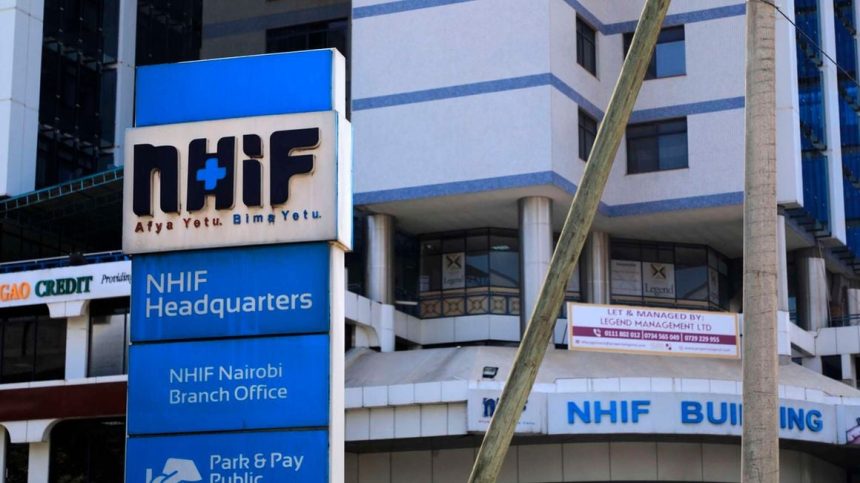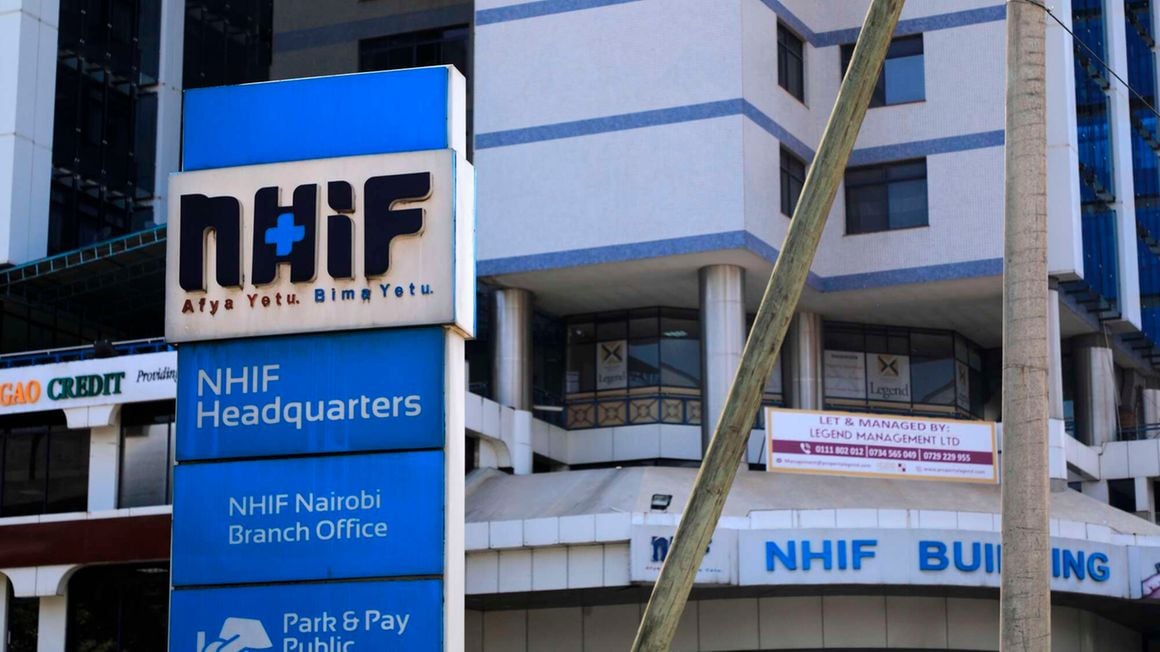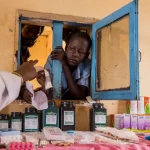Eight months ago, sleepy villages in Meru County received wolves in sheep’s clothing. Using the name of the National Health Insurance Fund (NHIF), men and women disguised as healthcare providers preached false hope to the villagers, promising to rescue them from the depths of arthritis complications.
All they had to do was dress up, carry their NHIF cards and travel free of charge to certain health facilities in Nairobi County where they would receive free medical services.
Months have passed since then, leaving residents of the rural county in anguish and tears, recounting the resultant disabilities and even deaths.
Mr Mwebia M’miriti, now a widower, recalls how his village was mobilised to attend a free arthritis medical camp at Nkubu Stadium in October 2022.
Produce cards
Visitors were asked to produce their NHIF cards, and those with other medical cards were turned away. They were then asked to explain their symptoms before being advised to get x-rays.
Mr Mwebia was told to find a medical facility to have his back x-rayed and then share the results. He ignored the call.
His wife, however, was advised to visit a private medical facility in Chuka for the same purpose, and a vehicle was provided to transport her and others free of charge. Back at the camp, she was told she needed an operation.
She would later that evening travel to Nairobi, free of charge, in a vehicle provided by camp officials.
Mr Mwebia says his wife had been in good health, although she occasionally complained of discomfort in her lower limbs, but she never felt the need to see a doctor and only used a pain balm.
“She only came to the camp because it was close to her home and was free,” he says.
The next day, after the operation, Mr Mwebia spoke to his wife on the phone and she revealed that she was at St Peter’s Orthopaedic Hospital in Kiambu County.
It was the last time they spoke.
While she was still at the hospital, Mr Mwebia received a text message informing him that Sh300,000 had been paid using his card.
But he is unsure whether the full amount was deducted for his wife’s treatment, who died soon thereafter, alone and far from home.
The hospital in Kinoo, Kiambu County, offered to transport the body to Nkubu mortuary, where they also paid for all the mortuary services. She was buried days later without a post-mortem examination being conducted.
Dr Jerry Wasena, an orthopaedic surgeon and the proprietor of the St Peter’s Hospital told Nation that the patient required surgical intervention, as they felt that she had grade three osteoarthritis.
“We have a programme in which we get patients from Chuka because we don’t have a surgical facility in Meru. Here we did everything to ascertain the surgery was necessary — a blood test, checked kidney function, and we felt the patient would benefit from surgery. We did a successful surgery, unfortunately on day two when the patient started to walk, she felt certain difficulty in breathing and died within a very short period. We tried to resuscitate her and even took her to ICU. Our biggest problem with invasive surgery is what we call dvt (deep vein thrombosis) or a clot, our worry is that this clot can go from the leg to the heart and this is what killed the patient,” he says.
While Dr Wasena says that the patient was brought to their facility, Mr Mwebia’s account is different, who said his late wife was picked at a medical camp.
“We have our own van that on a regular basis gets patients from there (Chuka) to here. We have a programme where we go do outreach and bring patients from wherever to here,” he says, admitting: “Honestly, I didn’t know that you need authorisation from the medical council to conduct a medical camp.”
Mr Douglas Kiraithe, Mr Mwebia’s fellow villager, recalls being summoned to Ntharane market by one Winfred Kathure, who claimed to be a specialist in treating arthritis, a condition that causes inflammation and stiffness of the joints.
She (Winfred) convinced them that the hospital had been officially opened by President William Ruto and that once treated, the condition would not return.
“There were more than 100 of us and we were very happy with the news. They said NHIF would cover the costs and that those without the cards would not be able to get treatment,” Mr Kiraithe explains.
“On the same day, seven of us went to Jekim Hospital for x-rays. On the way back in their car, one of the officials looking at the X-rays, said I would have an operation, while others would be given tablets. Two days later, 16 of us were picked up in the evening in a Nissan matatu. We arrived in Nairobi at 11pm, with a driver who did not know where we were going,” he adds.
Eventually, six people were dropped off at various facilities and the remaining 10, including Mr Kiraithe, were driven to Joy Nursing and Maternity Hospital, where they were registered and told to wait.




